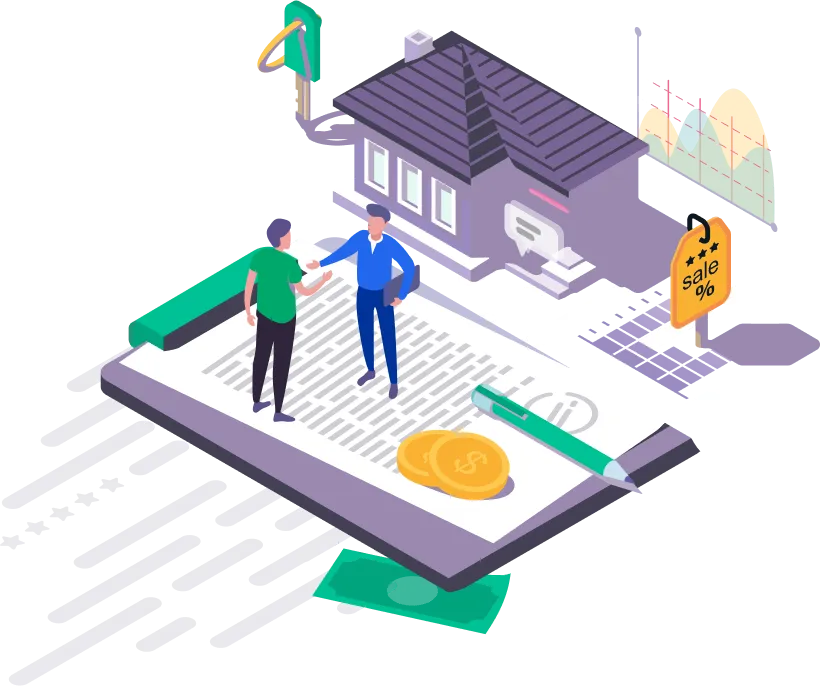Whether you're first-time home buyer, looking for second home or investor, or maybe someone with less-than-perfect credit, we have the right loan program for you.
Primegage is a mortgage broker in Los Angeles, CA that works with dozens of lenders to offer a wide selection of mortgage programs. This allows us to work closely with you to find the best mortgage for your needs, developing an individualized plan and providing a level of personalized attention you just won’t find at most nationwide banks.
We may review some or all of the following California mortgage options with you in order to put you in the home of your dreams.

We recommend contacting us first to learn about your finance options and see if you can get pre-approved so you know your budget before beginning your home search.
A gift must come from a family member (aunt, uncle, cousin, parent, sister, brother, fiancé, in-laws), sometimes employer. There are a few required documents that you need to complete a gift, so be sure to consult your loan officer on what items you and your gift donor may be required to supply.
Your interest rate is the direct charge for borrowing money. The APR, however, reflects the cost of your mortgage as a yearly rate and includes the interest rate, origination charge, discount points and other costs such as lender fees, processing costs, documentation fees, prepaid mortgage interest, and upfront and monthly mortgage insurance premium. When comparing loans across different lenders, it is best to use quoted APRs for the same type and term of loan.
For most homeowners, the monthly mortgage payments include three separate parts:
Principal: Repayment on the amount borrowed
Interest: Payment to the lender for the amount borrowed
Taxes & Insurance: Monthly payments are normally made into a special escrow account for items like hazard insurance and property taxes. This feature is sometimes optional, in which case the fees will be paid by you directly to the County Tax Assessor and property insurance company.
A mortgage rate lock is a promise to you from the lender to hold a specific combination of an interest rate and points for an agreed upon time (typically 10, 15, 30, 45 or 60 days) until you can close on your home. Locking in a rate protects you from unforeseen interest rate increases that can occur in the days or weeks leading up to closing, but conversely, if the rates fall, you may not be able to take advantage of the lower rates.Rate locks are dependent on the type of loan program, current interest rates, points, and the length of the lock. To hold a rate for longer periods of time, you usually have to agree to pay higher points or interest rates.
You should avoid opening new credit once you have applied for your mortgage, such as buying new car or taking out a new credit card. This can cause your approval to change since it will add to the amount of monthly debt payments that you are responsible for.
DTI: Debt-to-income ratio is the percentage calculated by dividing the borrower's monthly debts by their gross monthly income (income before taxes are deducted). For example, for a gross income of $5000 per month and debt payments consisting of mortgage or rent, a car payment, and credit cards of $2000 per month, divide the monthly debt (the $2000) by the gross monthly income (the $5000) to get a DTI of 40%.
This is also called a back-end DTI. It's important to note that debts such as utilities, car insurance, and cable bills are not considered a factor when calculating DTI.
Front-End DTI: The front-end DTI is calculated the same way as the back-end DTI, however the front-end DTI only calculates debt related to the anticipated mortgage payment, which generally includes principal, interest, taxes, and insurance (PITI).Lenders will use both front- and back-end DTIs to determine what a borrower can qualify for and how much of a mortgage the lender can provide based on the resulting percentage.The DTI calculates a borrower's ability to pay their mortgage. The higher the DTI, the higher the risk for the lender. As a result, higher DTIs traditionally carry higher interest rates whereas lower DTIs carry less risk and traditionally lower interest rates.
LTV: Loan-to-value ratio is calculated by dividing the current value of the home by the amount of the mortgage owed.
For both purchase and refinance transactions, the lender will hire an appraiser to find out the current market value. Once this value is known, the lender will divide the anticipated mortgage amount into the appraised value to calculate the LTV.



